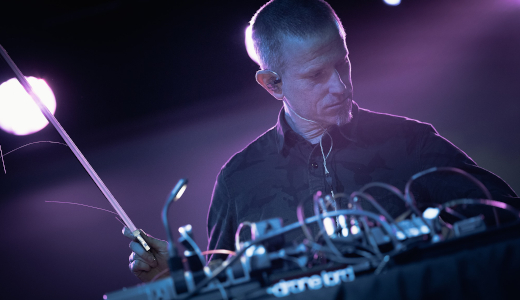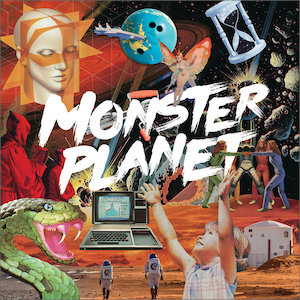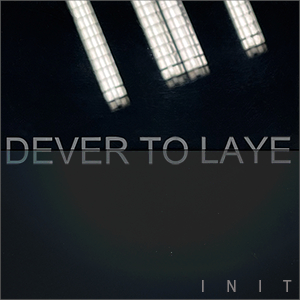A constant exploration of how sound can be evocative

Nathan :: Yeah, I didn’t release an album under my own name until 2015.
CRT :: Really?
Nathan :: Yeah. I actually did a trilogy of album and they are still available on streaming. I actually took them off from Bandcamp which people are confused why I did that. Just because it’s on the internet, it doesn’t mean that it had to be forever.
CRT :: Yeah.
Nathan :: I’m so proud of 20% of the material on those first three albums, but it’s not my voice anymore.
CRT :: Isn’t that interesting where you can look back and you’re like, “Okay, I was that person, and I get what they’re doing, but also ugh.”
Nathan :: Well, yeah. The 20% I liked the most was the stuff where it was the weirdest, it was the loosest, and it was the strangest material on those three albums, but I still like them.
CRT :: Interesting.
Nathan :: It’s not the stuff that was even melodic or anything, it’s just too weird. It’s super weird stuff that I still look back on with favor.
CRT :: Isn’t that funny? You make me think that I should find my old cassette tapes. I have stuff where I’d catch something weird in a looping delay and just record it. I always used to say, “No one’s gonna like that.” Now I realize now people build their careers on that like the empty mixer guy from Japan (Toshimaru Nakamura), and stuff like that. That’s interesting to me. It’s almost like you can see sort of the genesis of what you were kind of working towards in that earlier stuff.
Nathan :: I listened back to that early stuff and, like, the stuff that’s sequenced and melodic and rhythmic I just keep feeling like if I had only unclenched my ass a little bit it would be 200% better if I had just been looser.
CRT :: Yeah.
Nathan :: But it’s that experience and skill thing where I didn’t have the self-confidence to be that loose. In 2018, I started releasing material where if someone asked me what key it was in, I have no good answer, because I don’t know. There’s not in a key. It’s just all freeform improvisation. It just felt right. It’s in the key of right.
CRT :: Yeah, exactly. It’s in the key of “I like it.” Yeah, that’s fascinating to me. I envy someone like you who can read music, or has some background in theory. At the same time, I also know other musicians who are almost trapped by their training, like some of my friends are classical musicians. I was talking to one person about collaborating and I said “oh, I’d love to work on a track so we can start by improvising.” They looked at me as if I’d said “First, I’d like you to put your bow up my ass.” They just didn’t get it, whereas others like jazz musicians were like “oh yeah, totally. We can totally do that.“
Nathan :: It’s interesting.
CRT :: I think that’s one of the things for me lately is I’ve gotten more comfortable with saying to musicians, “I can’t read music but I have a good ear and eventually I’ll find the root note or key and I can build it from there.” But as to what key I play in, I don’t know. Good luck finding it. “Let’s see what Ableton says. Oh, it doesn’t have one.” I don’t know.
Okay so in 2015, you’re like “Okay, I’m ready to put something out there, or put newer stuff out.“
Nathan :: Yeah. I had a lot of contacts in the film music world, in the game audio world from being a sound designer. But I had no other listener base. I just found that some people dug it. I was like, “okay, cool. I’m not going to make more like that just because they dug it, but that validates what I’m doing directionally.” I felt like I didn’t need permission to keep exploring.
CRT :: Interesting.
Nathan :: So, I think what I’ve clearly found out about myself, being a multi-instrumentalist, is that one of my greatest thrills is not allowing people to predict what the next album is gonna sound like. I know a lot of bands who have equally valid, very different approaches where you’ve been playing music together for so long they can close their eyes, just hit random notes, and still sounds like their band.
CRT :: Yeah, exactly.
Nathan :: A lot of respect for that. That is not how my musical practice works. I find that for me, it’s just always a constant exploration of how sound can be evocative. That’s all I’m after today.
CRT :: Interesting.
Nathan :: How can sound evoke emotion? How can sound generate mental cinema for the listener? Can it create stories in their head that I don’t have to explicitly tell them? That is what gets me out of bed in the morning.
CRT :: Speaking of mental cinema: this new album by Nathan Moody, A Shadow No Light Could Make.
Nathan :: I have heard of this one.
CRT :: It’s really fucking good. The guy is a little bit of a mental case, but he’s from Maine if you know what I mean.
Nathan :: I know. Look at his last name, dude, come on.
CRT :: Moody. There are millions of them here.
Nathan :: I know. [BOTH LAUGH]
CRT :: Exactly. Maine is built upon the back of Moody’s and Libby’s. So as I was listening to this album again this morning, I read your one-sheet and I was like, “oh, of course it’s cinematic!” But It was really fascinating because the whole thing reminded me of a bunch of stuff. And funnily enough last night I was also listening random to soundtrack pieces. Like do you know The Bug?
Nathan :: Love him!
CRT :: Oh, yeah, he’s fucking great. He posted a link to the Ipcress File soundtrack. As I started listening to that, and then various other things. But I guess I’d sort of primed the pump in a way because your album reminds me a lot of the soundtrack to The Thin Man, the Orson Welles Picture.
Nathan :: Thin Man or Third Man?
CRT :: The Third Man! Sorry, yeah, The Third Man. Not that I hear the dulcimer theme necessarily but something about that kind of vibe, that noir-ish feel. The other thing it reminded me of since it’s so cinematic is the soundtrack Stewart Copeland did for Rumble Fish, which is amazing. This reminds me of Rumble Fish in its tone, sort of its texture if that makes sense, and kind of the space, almost the space around the notes. There’s an emotion of—I would say that there’s a great deal of darkness and sadness in your album, but it’s also really evocative and not just like, “Oh, there’s a spooky sound.” A lot of interesting things is going on with all the vocalists and the instrumentation. I really loved when I heard that. I don’t know if you haven’t heard Rumble Fish.
Nathan :: I actually haven’t.
CRT :: Go check it out. The movie itself was very experimental. Coppola had Stewart Copeland record it with this experimental precursor to SMPTE (Society of Motion Pictures, Television and Entertainment. SMPTE is a time code used to sync film to sound, especially when recording the score). The recording of it was crazy. Stewart Copeland now of course has done tons of scores and operas but this is his first. It’s weird and wild because he sampled a lot of city sounds of Oklahoma City where it was set. There’s a lot of orchestral pieces, too. But I love that similar cinematic evocation that your album has.
Nathan :: Thank you.
CRT :: You’re welcome. It’s great. Like I said to you when you were telling me about it, when someone says to me, “I got this album coming down, it’s orchestral and conceptual. I’ve got all these alternate tunings, etc.” and like my eyes cross and I’m thinking “I’m not gonna make it 30 seconds.” But that was not the case with this.
Nathan :: Good.
CRT :: I love it. I think to truly appreciate it, you got to be in the right space. When you’re in the right space, it really is amazing. I listened to it at night in the dark as you recommended.
Nathan :: It’s definitely not a “throw this on Easter Sunday” kind of album.
CRT :: Unless, you’re in that kind of family. I think it’s a testament to your confidence now as a musician, as an artist that you’re like “Yeah, it’s not gonna work for everybody.” I think to be able to say that shows a powerful grasp of who you are and where you are.
Nathan :: Some of that comes from how I use music in my personal life.
CRT :: How would you say you do that?
Nathan :: Well I should tell you a lot of the reasons I create music is to use music as an emotion sync. That’s where all the bad stuff goes for me. I’ve had a lot of people say that “Your albums are dark. They’re intense.” That’s their interpretation.
CRT :: Yeah.
Nathan :: I do use music to get the bad stuff out, so I can be empathetic and optimistic to people with other life.
CRT :: Oh, yeah.
<< previous page | next page >>


















![Allmanna Town :: 1911 EP (Self Released) — [concise]](https://igloomag.com/wp/wp-content/uploads/2025/03/allmannatown-1911_feat2-75x75.jpg)


